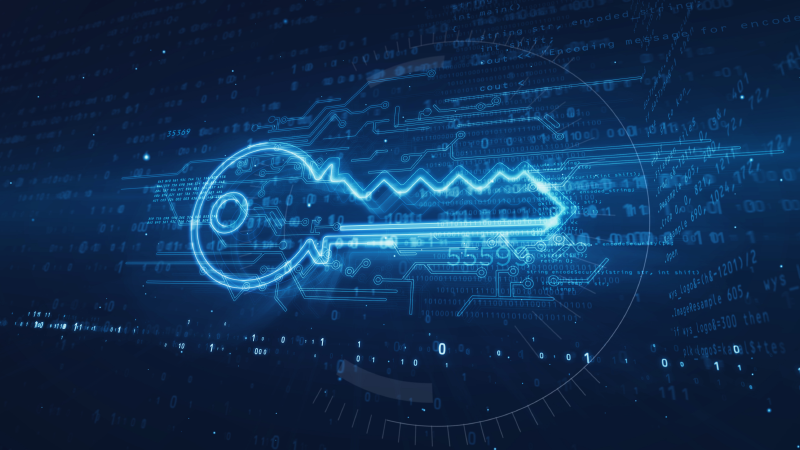Email Security 101
By Ben Collar | Trace3 Security Solutions Principal Engineer

Ben Collar is a Principal Cybersecurity Engineer with over 15 years’ experience in Information Technology focusing primarily on Email Security. After first gaining experience working for top Email Security vendors, Ben moved into consulting and administration roles. He holds certifications in multiple Email Security platforms with specializations in areas such as Email Fraud. His experience includes architecting and implementing enterprise deployments of Email Security solutions for various industries across the Fortune 500. Outside of work, Ben loves history and museums with his most recent museum visit being the Arizona Route 66 Museum in Kingman, AZ.
Why it’s smart to invest in email security tools, applications, and training for business data protection.
If you’re reading this blog, chances are you have an email address. You likely have more than one—a personal email and a work email. You receive information via email from friends, colleagues, businesses, and other sources on a daily basis. The sending and receiving of email never stops. It is a 24x7 digital machine that continues working even while you sleep! That’s why you can go to bed with a clean inbox and wake to a plethora of unread emails to sift through. Some emails are automated and blasted to multiple email addresses while others are sent directly to you from another person.Be Aware
Not all email communications are worth your time. You may subscribe to your favorite department store one day and choose to unsubscribe the next. The more often you use your email address to create and navigate websites, the higher the level of spam or other email attacks are to occur in your inbox. Let’s face it, some emails are downright dangerous to your cyber experience. That is why email security is so important.Email Security
Email security refers to the different approaches used to secure email accounts and data from cybersecurity attacks like malware, ransomware, business email compromise (BEC), URL-based phishing attacks, and spam. This may be obvious, but email is the primary method for business communication. Is your business being proactive to ensure email security? According to a recent Data Breach Information Report published by Verizon, email is responsible for 94 percent of delivered malware and 96 percent of phishing attacks. Just one click of a malicious link can lead to device compromise or a short response to social engineered phishing email can result in the sharing of sensitive information.5 Types of Email Security
The goal of email security is to protect users from phishing, spam, and malicious emails by scanning inbound and outbound communications. Additional capabilities often include data loss prevention, sandboxing, isolation, authentication, and encryption.- Secure Email Gateway (SEG) – Appliances that are either physical or virtual scan emails being sent and received for malicious content. If any malicious content is found, emails are quarantined before they reach the intended recipient. By protecting end users from unwanted emails, SEGs greatly reduce the risk of compromise.
- Cloud Email Security – Planning and process that focuses on the threats to cloud-based email platforms such as Microsoft Office 365 and Google’s G-Suite. Inbound and outbound email protection for phishing attacks with the capability to stop Business Email Comprise, Advanced Persistent Threats, and Malware. Cloud email security utilizes APIs to cloud inboxes to detect and remediate threats.
- Anti-Phishing – Security awareness training is a crucial part of any email security strategy. With phishing and social engineering attack methods becoming more common, it is important to educate users on email best practices. Training generally provides phishing simulations to analyze how well the education is received.
- Email Encryption – The encryption of email messages to better protect communication of sensitive information so it can be read only by the intended recipients. This is done by encrypting the connection with email providers, encrypting the email messages themselves, and encrypting emails stored on systems locally. Typically, this solution will also provide email authentication.
- Content Disarm and Release (CDR) – This process analyzes and sanitizes files in real-time by removing any potential malicious code. CDR does this by processing incoming files, deconstructing them, and removing all the elements that aren’t approved within policies. Once the file has been stripped of potential malicious code, it is reconstructed into a known safe state.

Ben Collar is a Principal Cybersecurity Engineer with over 15 years’ experience in Information Technology focusing primarily on Email Security. After first gaining experience working for top Email Security vendors, Ben moved into consulting and administration roles. He holds certifications in multiple Email Security platforms with specializations in areas such as Email Fraud. His experience includes architecting and implementing enterprise deployments of Email Security solutions for various industries across the Fortune 500. Outside of work, Ben loves history and museums with his most recent museum visit being the Arizona Route 66 Museum in Kingman, AZ.
Tags:
Security

